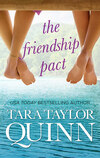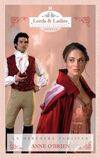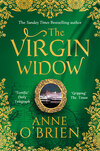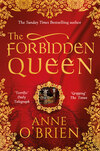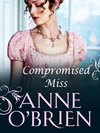Kitabı oku: «The King's Concubine», sayfa 6
‘Who would have thought so simple a thing as a gift of a rosary would cause so much trouble?’ she said, her smile wry. ‘And why should it take the whole of the royal household to solve the matter?’ Pushing herself to her feet, she drew me with her, taking everything in hand with a matriarchal authority. ‘Thank you, Sir Joscelyn. Lord Herbert. I know you have my interests at heart. You are very assiduous, but I will deal with this. This girl is no thief, forsooth. Now, give me your arm, Alice. Let me put some things right.’
I helped her from the chapel, conscious of her weight as we descended the stair, and of the King’s muttered comment that, thank God, I was no longer his concern. As we walked slowly towards the royal apartments, a warm expectancy began to dance through my blood. Maidservant? Tirewoman? I still could not imagine why she would want me, given the wealth of talent around her, but I knew there was something in her mind. Just as I sensed that from this point my life, with its humdrum drudgery and servitude, would never be the same again.
My immediate destiny was an empty bedchamber—unused, I assumed, from the lack of furnishings and the dust that swirled as our skirts created a little eddy of air. And in that room: a copper-bound tub, buckets of steaming water and the ministrations of two of the maids from the buttery. I was simply handed over.
With hot water and enthusiasm, buttressed by a remarkable degree of speculative interest, the maids got to work on me. I had never bathed before, totally immersed in water. I remembered Countess Joan, naked and arrogant, confident in her beauty, whereas I slid beneath the water to wallow up to my chin, like a trout in a summer pool, before my companions could actually look at me.
‘Go away,’ I remonstrated. ‘I’m perfectly capable of scrubbing my own skin.’
‘Queen’s orders!’ They simpered. ‘No one disobeys the Queen.’
There was no arguing against such a declaration so I set myself to make the best of it. The maids were audacious enough to point out my deficiencies. Too thin. No curves, small breasts, lean hips. They gave no quarter, making me horribly conscious of the inadequacies in my unclothed body, despite my sharp observation that life in a convent did not encourage solid flesh. Rough hands, they pointed out. Neglected hair. As for my eyebrows … The litany unrolled. ‘Fair is fashionable!’ they informed me.
I sighed. ‘Don’t rub so hard!’
They ignored me. I was soaped and rinsed, dried with soft linen, and in the end I simply closed my eyes and allowed them to talk and gossip and put me in the clothes provided for me. And such garments. The sensuous glide on my skin forced me to open my eyes. They were like nothing I had ever seen, except in the coffers of Countess Joan. An undershift of fine linen that did not catch when I moved. An overgown, close-fitting to my hips, in the blue of the Virgin’s cloak—a cotehardie, I was told, knowing no name for such fashionable niceties—with a sideless surcoat over all, sumptuous to my eyes with grey fur bands and an enamelled girdle. All made for someone else, of course, the fibres scuffed along hem and cuffs, but what did I care for that? They were a statement in feminine luxury I could never have dreamed of. And so shiny, so soft, fabrics that slid through my fingers. Silk and damask and fine wool. For the first time in my life I was clothed in a colour, glorious enough to assault my senses. I felt like a precious jewel, polished to a sparkle.
They exclaimed over my hair, of course.
‘Too coarse. Too dark. Too short to braid. Too short for anything.’
‘Better than when it was cropped for a novice nun,’ I fired back.
They pushed it into the gilded mesh of a crispinette, and covered the whole with a veil of some diaphanous material that floated quite beautifully and a plaited filet to hold it firm, as if to hide all evidence of my past life. But no wimple. I vowed never to wear a wimple again.
‘Put these on …’ I donned the fine stockings, the woven garters. Soft shoes were slid onto my feet.
And I took stock, hardly daring to breathe unless the whole ensemble fell off around my feet. The skirts were full and heavy against my legs, moving with a soft hush as I walked inexpertly across the room. The bodice was laced tight against my ribs, the neckline low across my unimpressive bosom. I did not feel like myself at all, but rather as if I were dressed for a mummer’s play I had once seen at Twelfth Night at the Abbey.
Did maidservants to the Queen really wear such splendour?
I was in the process of kicking the skirts behind me, experimentally, when the door opened to admit Isabella. The two maids curtseyed to the floor. I followed suit, with not a bad show of handling the damask folds, but not before I had seen the thin-lipped distaste. She walked round me, taking her time. Isabella, the agent of my kitchen humiliations.
‘Not bad,’ she commented, as I flushed. ‘Look for yourself.’ And she handed me the tiny looking glass that had been suspended from the chatelaine at her waist.
Oh, no! Remembering my last brush with vanity, I put my hands behind my back as if I were a child caught out in wrong doing. ‘No, I will not.’
Her smile was deeply sardonic. ‘Why not?’
‘I think I’ll not like what I see,’ I said, refusing to allow my gaze to fall before hers.
‘Well, that’s true enough. There’s only so much that can be done. Perhaps you’re wise,’ Isabella murmured, but the sympathy was tainted with scorn.
Peremptorily she gestured, and in a silence stretched taut I was led along the corridors to the solar where Philippa sat with her women.
‘Well, you’ve washed her and dressed her, Maman. For what it’s worth.’
‘You are uncharitable, Isabella.’ The Queen’s reply was unexpectedly sharp.
Isabella was not cowed. ‘What do we do with her now?’
‘What I intended from the beginning, despite your meddling. She will be one of my damsels.’
A royal damsel? Isabella’s brows climbed. I suspect mine did too. I was too shocked to consider how inappropriate my expression might be.
‘You don’t need her,’ Isabella cried in disbelief. ‘You have a dozen.’
‘No?’ A smile, a little sad to my mind, touched the Queen’s face. ‘Maybe I do need her.’
‘Then choose a girl of birth. Before God, there are enough of them.’
‘I know what I need, Isabella.’ As the Queen waved her daughter away she handed the rosary back to me.
‘My lady …’
What could I find to say? My fingers closed around the costly beads, whatever the Queen might say to the contrary. In the length of a heartbeat, in one firm command and one gesture of dismissal of her daughter’s hostility, the Queen had turned my life on its head.
‘Don’t say I didn’t warn you.’ So Isabella had the last word.
She did not care that I heard her.
Why me? The one thought danced in my head when the ladies were gone about their customary affairs. A damsel—a lady in waiting to the Queen.
‘Why me?’ I asked aloud. ‘What have I to offer, Majesty?’
Philippa perused me as if searching for an answer, her features uncommonly stern.
‘Your Majesty?’
‘Forgive me. I was distracted.’ She closed her eyes: when she opened them there was a lingering vestige of sorrow, but her voice was kind enough. ‘One day I’ll tell you. But for now, let’s see what we can do with you.’
So there it was. Decided on some chance whim, with some underlying purpose that the Queen kept to herself. I became a domicella. A lady in waiting. Not a domina, one of the highborn, but a domicella. I was the youngest, least skilled and least important of the Queen’s ladies. But I was a part of her household. I was an inhabitant of her solar.
I could not believe my good fortune. When sent on some trivial errand through a succession of deserted antechambers, I lifted my skirts above my ankles and, fired by sheer exuberance, danced a measure of haphazard steps to the lingering echoes of the lute from the solar. Not well, you understand, for it was something I had yet to learn, but more than I had ever achieved in my life. It fascinated me what confidence a fine robe with fur edgings could bestow on a woman. When a passing maidservant, one I had brushed shoulders with in the hot squalor of the kitchens, dropped an open-mouthed, reluctant curtsey before rushing off to spread the news of the marvellous advancement of Alice Perrers, I danced again. This was more like it. Alice Perrers: a court lady, in such finery as she could never have imagined. It was all too much to believe, my transition from greasy servant to perfumed damsel, but if one of the kitchen sluts afforded me a sign of respect, then it must be so. I was so full of joy that I could barely restrain myself from shouting my good fortune to the still, watchful faces in the tapestries.
I would, if I had my way, never set foot in a kitchen again.
What would clerk Greseley say if he could see me now? Waste of good coin! I suspected. Better to put it into bricks and mortar! What remark would Wykeham find to make, other than an explanation of his ambitions to construct a royal bath house and garderobe? I laughed aloud. And the King? King Edward would only notice me if I had cogs and wheels that moved and slid and clicked against each other.
I tried a pirouette, awkward in the shoes that were too loose round the heel. One day, I vowed, I would wear shoes that were made for me and fitted perfectly.
As for what the Queen might want of me in return, it could not be so very serious, could it?
They tripped over their trailing skirts, the Queen’s damsels, to transform me into a lady worthy of my new position. I was a pet. A creature to be cosseted and stroked, to relieve their boredom. It was not in my nature, neither was it a role I wished to play, but it was an exhilarating experience as they created the new Alice Perrers.
I absorbed it all: anointed and burnished, my hands smothered in perfumed lotions far headier than anything produced in Sister Margery’s stillroom, my too-heavy brows plucked into what might pass for an elegant arch—if the observer squinted. Clothes, and even jewels, were handed over with casual kindness. A ring, a brooch to pin my mantle, a chain of gilt and gleaming stones to loop across my breast. Nothing of great value, but enough that I might exhibit myself in public as no less worthy of respect than the ladies from high-blooded families. I spread my fingers—now smooth with pared nails, to admire the ring with its amethyst stone. It was as if I was wearing a new skin, like a snake sloughing off the old in spring. And I was woman enough to enjoy it. I wore the rosary fastened to my girdle, enhanced with silver finials even finer than those of Abbess Sybil.
‘Better!’ Isabella remarked after sour contemplation. ‘But I still don’t know why the Queen wanted you!’
It remained beyond my comprehension too.
The Queen’s damsels were feminine, pretty, beautiful. I was none of those. Their figures were flattered by the new fashion, with gowns close-fitting from breast to hip. The rich cloth hung on me like washing on a drying pole. They were gifted in music for the Queen’s pleasure. Any attempt to teach me to sing was abandoned after the first tuneless warble. Neither did my fingers ever master the lute strings, much less the elegant gittern. They could stitch a girdle with flowers and birds. I had no patience with it. They conversed charmingly in French, with endless gossip, with shared knowledge of people of the Court. I knew no one other than Wykeham, who deigned to speak with me when he returned to Court, even noting my change of fortune—’Well, here’s an improvement, Mistress Perrers! Have you learnt to ride yet?’—but his fixation with building arches was the subject of laughter. Master Wykeham clearly did not flirt.
For the damsels, flirtation was an art in itself. I never learned it. I was too forthright for that. Too critical of those I met. Too self-aware to pretend what I did not feel. And if that was a sin, I was guilty. I could not pretend an interest or an affection where I had none.
Had I nothing to offer? What I had, I used to make myself useful, or noticed, or even indispensable. I had set my feet in the Queen’s solar. I would not be cast off, as Princess Isabella cast off her old gowns. I worked hard.
I could play chess. The ordered rules of the little figures pleased me. I had no difficulty in remembering the measures of a knight against a bishop, the limitations of a queen against a castle. As for the foolish pastime of Fox and Geese, I found an unexpected fascination in manoeuvring the pieces to make the geese corner the fox before that wily creature could prey on the silly birds.
‘I’ll not play with you, Alice Perrers!’ Isabella declared, abandoning the game. ‘Your geese are too crafty by half.’
‘Craftier than your fox, my lady.’ Isabella’s fox was tightly penned into a corner by my little flock of birds. ‘Your fox is done for, my lady.’
‘So it is!’ Isabella laughed, more out of surprise than amusement, but she resisted a cutting rejoinder.
To please the damsels I made silly, harmless love charms and potions, gleaned from my memory of Sister Margery’s manuscripts in the Abbey’s Infirmary. A pinch of catnip, a handful of yarrow, a stem of vervain, all wrapped in a scrap of green silk and tied with a red cord. If they believed they were effective, I would not deny it, although Isabella swore I was more like to add the deadly hemlock in any sachet I made for her. I read to them endlessly when they wanted tales of courtly love, between a handsome knight and the object of his desire, to sigh over.
Not bad at all for a nameless, ill-bred girl from a convent. I would never be nameless and overlooked again. Pride might be a sin, but it filled my breast with gratification. Why should I not be proud of my advancement? I would be somebody worthy of a position at the royal court. I was Alice, Queen’s damsel.
And Isabella was wrong. I would never use hemlock. I knew enough from Sister Margery’s caustic warnings to be wary of such satanic works.
But what service could I offer Queen Philippa when the whole household was centred on fulfilling her wishes even before she expressed them? That was easy enough. I made draughts of white willow bark.
‘You are a blessing to me, Alice.’ The pain had been intense that day, but now, propped against her pillows, the willow tincture making her drowsy, she sighed heavily with relief. ‘I am a burden to you.’
‘It is not a burden to me to give you ease, my lady.’
I saw the lines beside her eyes begin to smooth out. She would sleep soon. The days of pain were increasing in number and her strength to withstand it was ebbing, but tonight she would have some measure of peace.
‘You are a good girl.’
‘I wasn’t a good novice!’ I responded smartly.
‘Sit here. Tell me about those days when you were a bad novice.’ Her eyelids drooped but she fought the strength of the drug.
So I did, because it pleased me to distract her. I told her of Mother Abbess and her penchant for red stockings. I told her of Sister Goda and her heavy hand, of the chickens that fell foul of the fox because of my carelessness and how I was punished. I knew enough by now not to speak of Countess Joan. Joan, the duplicitous daughter-in-law, far away in Aquitaine with her husband the Prince—she had entrapped him after all—was not a subject to give the Queen a restful night.
‘It was good that I found you,’ she murmured.
‘Yes, my lady.’ I smoothed a piercingly sweet unguent into the tight skin of her wrist and hand. ‘You have changed my life.’
A little silence fell but the Queen was not asleep. She was contemplating something beyond my sight that did not seem entirely to please her, gouging a deep cleft between her brows. Then she blinked and fixed me with an uncomfortable gaze. ‘Yes, Alice. I am sure it was good that you fell into my path.’
I was certain it was not merely to smear her suffering flesh with ointments. A shiver of awareness assailed me in the overheated room, for her declamation suggested some deep uncertainty. Had I done something to lose her regard so soon? I cast my mind over what I might have said or done to cast her into doubt. Nothing came to mind. So I asked.
‘Why did you choose me, my lady?’
When the Queen looked at me, her eyes were hooded. She closed her free hand tightly around the jewelled cross on her breast, and her reply held none of her essential compassion. Indeed, her voice was curt and bleak, and she drew her hand from my ministrations as if she could not bear my touch.
‘I chose you because I have a role for you, Alice. A difficult one perhaps. And not too far distant. But not yet. Not quite yet …’ She closed her eyes at last, as if she would shut me from her sight. ‘I’m weary now. Send for my priest, if you will. I’ll pray with him before I sleep.’
I left her, more perplexed than ever. Her words resurfaced as I lit my own candle and took myself to bed in the room I shared with two of the damsels. Sleep would not come.
I have a role for you. A difficult one perhaps. And not too far distant …
Chapter Five
IT BECAME my habit to keep a journal of sorts. I was not wishful to lose the skill I had learned with such painstaking effort. No one had a need of my ability to write in a palace where men of letters matched the vast number of huntsmen. Sometimes I wrote in French, sometimes in Latin, as the mood took me. I begged pieces of parchment, pen and ink from the palace clerks. They were not unwilling when I smiled, or slid a long-eyed glance. I was learning the ways of the Court, and the power of my own talents to attract.
And what did I write? A chronology of my days. What I wished to remember. I wrote, as I recall, for over a year.
Did I ever consider that the damsels might discover what I wrote? Not for a moment. They mocked my scribbling. And what I scribbled was excruciatingly dull. Once, to satisfy their curiosity, I read aloud …
‘Today I joined the damsels in my first hunt. I had no enjoyment of it. The King celebrates his fiftieth year with a great tournament and jousting held at Smithfield. We all attend. I am learning to dance.’
‘By the Virgin, Alice!’ Isabella yawned behind her slender fingers. ‘If you have nothing better to write about, what in heaven’s name is the value of doing it? Better to return to scouring the pots in the kitchens.’
Dull? Infinitely. And quite deliberate, to ensure that no damsel was sufficiently interested to poke her sharp nose into what I might be doing. But what memories my writings evoked for me upon reading them again when my life was in danger and turmoil. There on the pages, in the briefest of record, the pattern of my life unfolded in that fateful year. What a miraculous, terrifying, life-changing year it proved to be.
Today I joined the damsels in my first hunt. I had no enjoyment. The gelding I was given was a mount from hell. I would never see the pleasure in being jolted and bounced for two hours, to come at the end to a baying pack of hounds and a bloody kill. Truth to tell, the kill happened without me, for I fell off with a shriek at the first breath-stopping gallop. Sitting on the ground, covered with leaf mould and twigs, beating the damp earth from my skirts, I raged in misery. My crispinettes and hood had become detached, the hunt had disappeared into the distance. So had my despicable mount. It would be a long walk home.
‘A damsel in distress, by God!’
I had not registered the beat of hooves on the soft ground under the trees. I looked up to see two horses bearing down on me at speed, one large and threatening, the other small and wiry.
‘Mistress Alice!’ The King reined in, his stallion dancing within feet of me. ‘Are you well down there?’
‘No, I am not.’ I was not as polite as I should have been.
‘Who suggested you ride that brute that thundered past us?’
‘It was the Lady Isabella. Then the misbegotten bag of bones deposited me here … I should never have come. I detest horses.’
‘So why did you?’
I wasn’t altogether sure, except that it was expected of me. It was the one joy in life remaining to the Queen when she was in health. The King swung down, threw his reins to the lad on the pony, and approached on foot. I raised a hand to shield my eyes from the sun where it glimmered through the new leaves.
‘Thomas—go and fetch the lady’s ride,’ he ordered.
Thomas, the King’s youngest son, abandoned the stallion and rode off like the wind on the pony. The King offered his hand.
‘I can get to my feet alone, Sire.’ Ungracious, I knew, but my humiliation was strong.
‘I’ve no doubt, lady. Humour me.’
His eyes might be bright with amusement but his order was peremptory and not to be disobeyed. I held out my hand, and with a firm tug I was pulled to my feet, whereupon the King began to dislodge the debris from my skirts with long strokes of the flat of his hand. Shame coloured my cheeks.
‘Indeed you should not, Sire!’
‘I should indeed. You need to pin up your hair.’
‘I can’t. There’s not enough to pin up and I need help to make it look respectable.’
‘Then let me.’
‘No, Sire!’ To have the King pin up my hair? I would as soon ask Isabella to scrub my back.
He sighed. ‘You must allow me, mistress, as a man of chivalry, to set your appearance to rights.’
And tucking my ill-used crispinettes into his belt he proceeded with astonishingly deft fingers to re-pin my simple hood, as if he were tying the jesses of his favourite goshawk. I stood still under his ministrations, barely breathing. The King stepped back and surveyed me.
‘Passable. I’ve not lost my touch in all these years.’ He cocked an ear to listen, and nodded his head. ‘And now, lady, you’ll have to get back on.’
He was laughing at me. ‘I don’t wish to.’
‘You will, unless you intend to walk home.’ Thomas had returned with my recalcitrant mount and before I could make any more fuss, I was boosted back into the saddle. For a moment, as he tightened my girths, the King looked up into my face, then abruptly stepped back.
‘There you are, Mistress Alice. Hold tight!’ A slap of the King’s hand against the horse’s wide rump set me in motion. ‘Look after her, Thomas. The Queen will never forgive you if you allow her to fall into a blackberry thicket.’ A pause, and the words followed me. ‘And neither will I.’
And Thomas did. He was only seven years old and more skilled at riding than I would ever be. But it was the King’s deft hands I remembered.
The King celebrates his fiftieth year with a great tournament and jousting. Magnificent! The King was superlative in his new armour. I could not find words, burnished as he was by the sun, sword and armour striking fire as his arm rose and fell, the plumes on his helmet nodding imperiously. And yet I feared for him, my loins liquid and cold with fear. I could not look away, but when blood glistened on his vambrace, dripping from his fingers, I closed my eyes.
No need of course. His energy always prodigious, he was touched with magic that day. Fighting in the mêlée with all the dash and finesse of a hero of the old tales, he had the grace at the end to heap praise on those whom he defeated.
Afterwards, when the combatants gathered in the banter much loved by men, the Queen’s ladies threw flowers to the knight of their choice. I had no one. Neither did I care, for there was only one to fill my vision, whether in the lists or in the vicious cut and thrust of personal combat. And I was audacious enough to fling a rosebud when he approached the gallery in which we women sat with the Queen. He had removed his helm. He was so close to me, his face pale and drawn in the aftermath of his efforts, that I could detect the smear of blood on his cheek where he had wiped at the dust with his gauntlet. I was spellbound, so much so that the flower I flung ineptly struck the cheek of the King’s stallion—a soft blow, but the high-blooded destrier instantly reared in the manner of its kind.
‘Sweet Jesu!’ Startled, the King dropped his helm, tightening his reins as he fought to bring the animal back under control.
‘Have you no sense?’ Isabella snapped.
I thought better of replying and steeled myself for the King’s reproof. Without a word he snapped his fingers to his page to pick up the helm and the trampled flower. I looked at him in fear.
‘My thanks, lady.’
He bowed his head solemnly to me as he tucked the crumpled petals into the gorget at his throat. My belly clenched, my face flamed to my hairline. Proud, haughty, confident, he was the King of England yet he would treat me with respect when I had almost unhorsed him.
‘Our kitchen maid cannot yet be relied upon to act decorously in public!’ Isabella remarked, setting up a chorus of laughter.
But the King did not sneer. Urging his horse closer to the gilded canvas, the fire dying from his eyes as the energy of battle receded, he stretched out his hand, palm up.
‘Mistress Alice, if you would honour me.’
And I placed mine there. The King kissed my fingers.
‘The rose was a fine gesture, if a little wayward. My horse and I both thank you, Mistress Alice.’
There was the rustle of appreciative laughter, no longer at my expense. I felt the heat of his kiss against my skin, hotter than the beat of blood in my cheeks.
I am learning to dance. ‘Holy Virgin!’ I misstepped the insistent beat of the tabor and shawm for the twentieth time. How could I excel at tallying coins, yet be unable to count the steps in a simple processional dance? The King’s hand tightened to give me balance as I lurched. He was a better dancer than I. It would be hard to be worse.
‘You are allowed to look at me, Mistress Alice,’ he announced when we came together again.
‘If I do, I shall fall over my feet, Sire, or yours. I’ll cripple you before the night is out.’
‘I’ll lead you in the right steps.’ I must have looked askance. ‘Do you not trust me, Alice?’
He had called me by my name, without formality. I looked up, to find his eyes quizzical on my face, and I missed the next simple movement.
‘I dare not,’ I managed.
‘You would refuse your King?’ He was amused again.
‘I would when it would be to his benefit.’
‘Then we must do our poor best, sweet Alice, and count the broken toes at the end of the evening.’
Sweet Alice? Was he flirting with me? But no. That was not possible. I exasperated him more than I entertained him.
‘By God, Mistress Alice. You did not lie,’ he stated ruefully as the procession wound to its end. ‘You should issue a warning to any man who invites you.’
‘Not every man is as brave as you, Sire.’
‘Then I’ll remember not to risk it again,’ he said as he handed me back to sit at Philippa’s side.
But he did. Even though I still fell over his feet.
The Queen did not forbid me to dance with the King, but she appeared to find little enjoyment in the occasion.
The Queen has given the King a lion. Ah, yes! The affair of the lion! Observing the damsels with scorn where they huddled, hiding their faces, retreating from its roars in mock fear, keen to find a comforting arm from one of the King’s gallant knights, I walked towards the huge cage where I might inspect the beast at close quarters. I was not afraid, and would not pretend to be so. How could it harm me when it was imprisoned behind bars and locks? Its rough, tawny mane, its vast array of teeth fascinated me. I stepped closer as it settled on its haunches, tail twitching in impotent warning.
‘You’re not afraid, Mistress Alice?’ Soft-footed, the King stood behind me.
‘No, Sire. What need?’ We had returned to formality and I was not sorry. Was he not the King? ‘The girls are foolish, not afraid. They just wish to …’
‘They wish to attract attention?’
‘Yes, Sire.’
We looked across to where the fluttering damsels received assurance and flattery.
‘And you do not, Mistress Alice? Does not some young knight take your critical eye? Is there no one you admire?’
I thought about this, giving his question more consideration than perhaps was intended, appraising the wealth of strength and beauty and high blood around me.
‘No, Sire.’ It was the truth.
‘But you admire my lion.’
‘Oh, I do.’
The lion watched us with impassive hatred. Were we not the cause of its imprisonment? I considered its state, and my own past experience. Both kept under duress, without freedom. Both existing on the whim of another. But I had escaped by miraculous means. There would be no miracle for this lion. This poor beast would remain in captivity until the day of its death.
‘Does nothing fill you with terror? Other than horses, of course.’
He had unnerved me again. ‘Yes,’ I replied. ‘But it’s a fear you’ll never know, Sire.’
‘Tell me, then.’
Before I could collect my wits I found myself explaining, because he was regarding me as if he really cared about my fears. ‘I am afraid of the future, Sire, where nothing is permanent, nothing is certain. Of a life without stability, without friends or family, without a home. Where I am nobody, without name or status.’ I paused. ‘I don’t want to be dependent on the pity or charity of others—I have had enough of that. I want to make something of myself, for myself.’
Holy Mother! I looked fixedly at the lion. Had I really admitted to all that? To the King?
‘It’s a lot to ask,’ he replied simply. ‘For a young woman in your situation.’
Much as Countess Joan had observed, with far less courtesy. ‘Is it impossible?’
‘No. That was not my meaning. But it’s a hard road for a woman alone to travel.’




